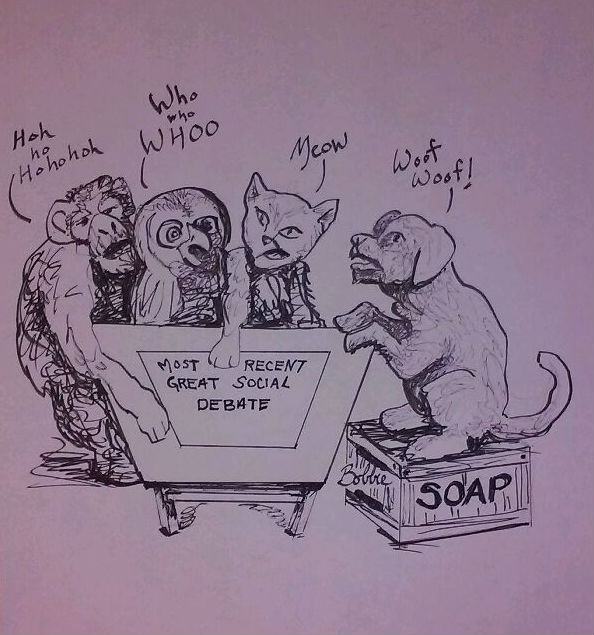In 2016 the Internet will witness rising amounts of personal blogs and colloquial columns, the increasing platformization of casual and profuse opinions from the digital megaphone that is the ever more accessible journalistic web. Meaning, a lot of stupid shit from a lot of stupid people is about to get published.
Opinion articles are always going to be either well-informed and invigorating or plain desultory. In reality, most opinion actually has no intrinsic value, is contrived from fragmented observations or prejudices and receives credit on capriciously defined standards.
Opinion-making is often obligatory. A lot of the time we are conversationally forced to posit our intelligence on either side of whatever the most recent great social debate is. You may think gay marriage is wrong, for example. That’s an opinion. Yet whether there’s something wrong with gay marriage has nothing to do whatsoever with your opinion that there is, and your opinion is wrong, and you should feel stupid. Even when we form opinions about matters of fact in which we don’t have sufficient knowledge, such as the theoretical existence of a multiverse, in time information could elucidate the underlying truth and opinion becomes just as invalid as with social issues.
Another issue is the varying acceptability and appropriateness of opinion. Every day we’re expected to form judgments, from the food we consume to the media we digest. Critical commentary drives most conversation in social or professional circles. Of the few things not expected to be judged, ourselves and other people are most taboo – expression of distaste in another human’s actions, judgments of appearance, shit talking and gossip, self-condescension and feelings of guilt are all denied the same validity as opinions disinterested from humanity. This has always seemed like an arbitrary distinction, particularly because humans do an awful lot of shitty things and make an abundance of shitty choices. The thing is, if you waste your time with an opinion you may as well waste it on opinions of people and yourself as well.
Socrates was the earliest thinker to entirely abandon opinion. He was the ultimate non-expert and sought to remain as objective and rejective of personal knowledge as possible: all that I know is that I know nothing. Progressive ideaship relies entirely on open-minded, non-defensive discourse with an explorative emphasis. This is best accomplished when no one brings egg-headed and antique opinions that are firstly based on too little information and secondly politically stratifying.
Opinions also propound a certain constant: the idea of enduring what doesn’t quite feel true. You shouldn’t subject yourself to stupidity, nor produce stupidity. This endurance invokes programs that presume your unintelligence, and has been the invention of much low-quality television, cinema, education and news sources. Much of the readings in your General Education courses are written for the lowest common denominator, and if you’re smarter than that, you’ll find ways out of the compulsory dunce cap that is Gen Ed.
In the end, there’s a million reasons to not have an opinion but only one reason to have one: when it’s your job as an opinion columnist.
William Rein can be reached at [email protected] or @toeshd on Twitter.









